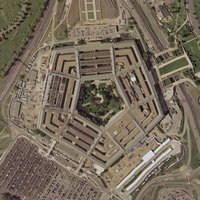Following World War II, the United States reluctantly became a global superpower. By the end of the Cold War, Americans had so taken to the exercise of power that they found it unthinkable to be anything but a superpower. Preserving that status shifted from a necessary evil to an explicit objective. But now what was once unthinkable is back on the table. For the first time in decades, many Americans are questioning whether the United States wants to or even can remain a global superpower.
In some ways, the United States has always been ill-equipped to orchestrate the international security system. Geographic isolation spawned an American strategic culture more inclined to episodic involvement in great power conflict than the sustained management of world order. Unlike other nations with centuries of involvement in life-or-death national struggles, Americans saw force and diplomacy as discrete alternatives to be used sequentially rather than as an inextricable part of the power continuum. The American method for dealing with a security threat was first to attempt diplomacy and political pressure. With a few exceptions steeped in European statecraft like Henry Kissinger, U.S. policymakers only considered military force if diplomacy failed. Because Americans saw diplomacy and force as discrete alternatives rather than integrally linked, they resisted the use of the U.S. military for political “messaging” and sought unambiguous, preferably decisive, victory when force was used. National leaders who settled for something less than outright victory paid a heavy political price, sometimes one that damaged their entire political party.
While long an informal component of American strategy, this compartmentalization of diplomacy and force was codified in what became known as the Weinberger or Powell “doctrine.” While the Obama administration has not directly attributed its national security strategy to Caspar Weinberger or Colin Powell, who were, after all, Republicans, Barack Obama’s approach to the world very much reflects the doctrine.

